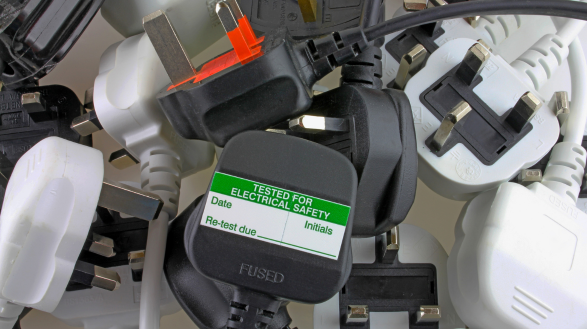Portable appliance testing (PAT) is an essential aspect of ensuring the safety of electrical appliances used in the workplace. PAT testing involves checking electrical appliances for any defects or damages that may cause harm to the user or the workplace. In the UK, employers have a legal obligation to ensure the safety of their employees by conducting regular PAT testing. In this blog, we look at the electrical appliances that should be considered for PAT testing and why PAT testing is important.
What are portable appliances?
Before we discuss which electrical appliances require PAT testing, it is important to understand what portable appliances are. Portable appliances are electrical appliances that are not fixed in place and can be moved from one location to another. Examples of portable appliances include laptops, vacuum cleaners, kettles, toasters, and power tools. These appliances are often used in the workplace and can pose a significant safety risk if not regularly maintained and checked for any defects.
Which electrical appliances require PAT testing?
In the UK, there is no definitive list of electrical appliances that require PAT testing. However, employers should consider the type of appliance, the environment it is used in, and the frequency of its use. Appliances that are frequently used, moved, or plugged and unplugged, are at a higher risk of becoming damaged or defective. As a result, they should be considered for PAT testing. Some examples of electrical appliances that require PAT testing include:
- Computers and Laptops: Workstations and portable computing devices, such as laptops, are commonly utilised in professional environments and undergo frequent relocation. Regular inspections are necessary to identify any potential flaws or impairments that may compromise their safety.
- Power Tools: Industrial-grade power tools are extensively employed in various work settings and are particularly susceptible to damage or malfunctions. Conducting routine inspections is essential to detect any flaws or impairments that might jeopardize their safe operation.
- Kitchen Appliances: Culinary equipment, including kettles and toasters, is frequently utilised in professional kitchens, and it is imperative to regularly examine them for any potential defects or damages to mitigate potential safety hazards.
- Extension Leads and Power Boards: Electrical extension cords and power distribution units are commonly employed in professional settings, and due to prolonged usage, they are prone to wear and tear. Regular assessments are necessary to identify any defects or damages that may compromise their safety.
Why is PAT testing important?
PAT testing is important because it ensures the safety of electrical appliances used in the workplace. Regular PAT testing can identify any defects or damages that may pose a safety risk to the user or the workplace. By identifying these defects or damages, employers can take the necessary steps to repair or replace the appliance, ensuring the safety of their employees.
In addition to ensuring the safety of employees, regular PAT testing can also help to reduce the risk of fires in the workplace. Defective or damaged electrical appliances can be a significant cause of workplace fires and regular PAT testing can identify these appliances and prevent potential fires from occurring.
PAT testing is an essential aspect of ensuring the safety of electrical appliances used in the workplace. At Compliance Group, all our qualified engineers are trained to nationally recognised standards, using the latest equipment to ensure all PAT tests are carried out efficiently and comprehensively. They are also able to carry out all necessary repairs to the power supply at the time of inspection, therefore minimising the number of items failing. Uniquely numbered with a permanent label, each appliance tested is logged into our test database which handles over a million results annually, providing reports and schedules in both, printed and digital formats.
Contact us at CGEsales@compliancegroup.uk today to discuss how we can ensure your electrical compliance and safety.
A nationwide
network of intelligent
compliance services.


